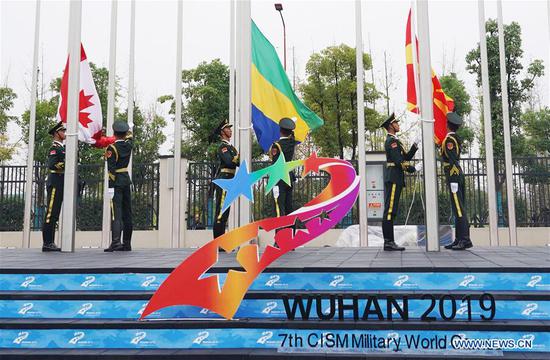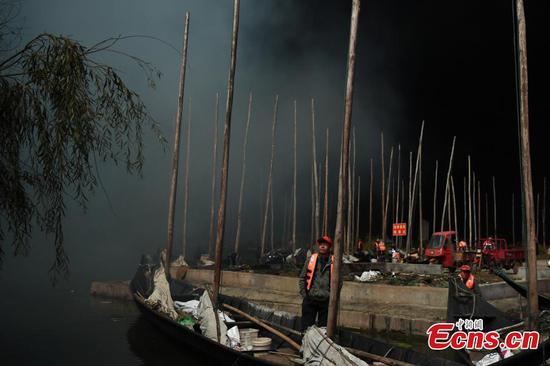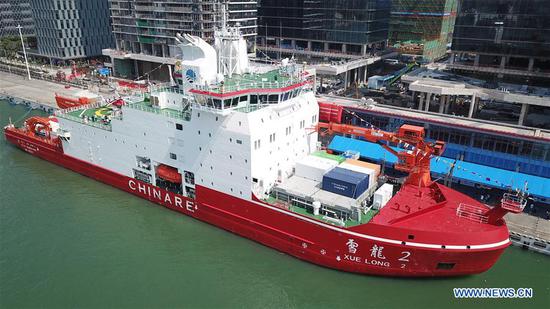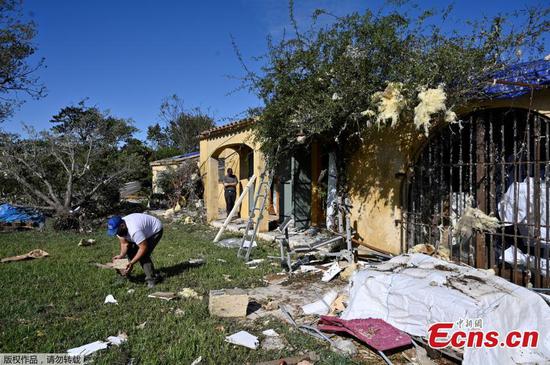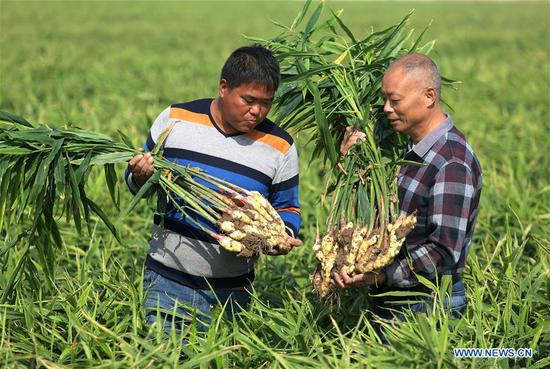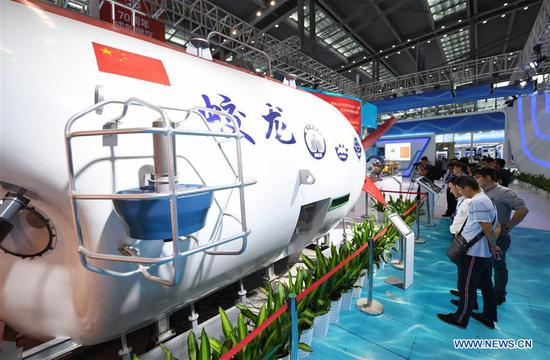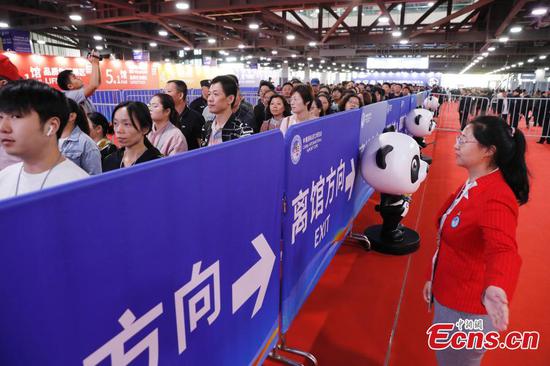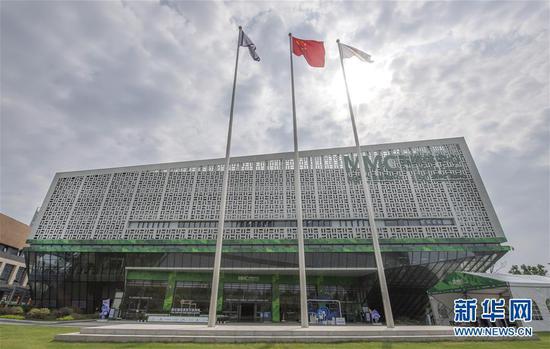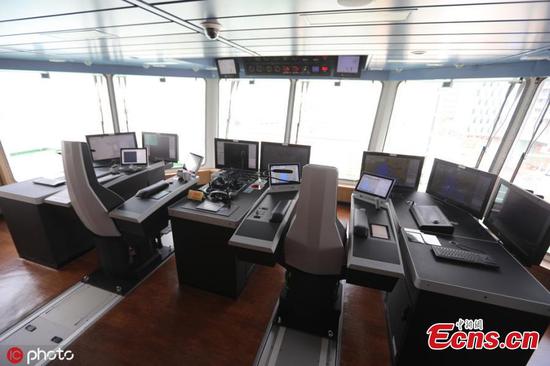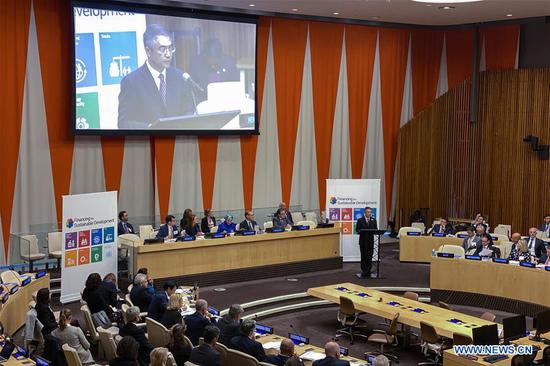
Gu Shu, president of the Industrial and Commercial Bank of China (ICBC), speaks during the launch of the Global Investors for Sustainable Development (GISD) Alliance at the UN headquarters in New York, on Oct. 16, 2019. The UN announced Wednesday that 30 global business leaders, including the Industrial and Commercial Bank of China (ICBC), will work together over the next two years to free up trillions of dollars to finance the Sustainable Development Goals (SDGs). (Xinhua/Li Muzi)
The UN announced Wednesday that 30 global business leaders, including the Industrial and Commercial Bank of China (ICBC), will work together over the next two years to free up trillions of dollars to finance the Sustainable Development Goals (SDGs).
Convened by UN Secretary-General Antonio Guterres, the Global Investors for Sustainable Development Alliance is made up of 30 chief executives from asset management, investment funds, commercial banks, insurance and business enterprises from various countries.
The alliance aims to use their expertise, influence and business acumen in devising ways to stimulate long-term investment in development and speed up progress toward achieving the SDGs.
According to a joint statement, business leaders of the alliance have committed to focus on delivering concrete solutions to unlock long-term finance and investment in sustainable development both at company and system-wide levels over the next two years.
They have also agreed to establish partnerships between investors, governments and multilateral institutions that serve to develop scalable investment opportunities in developing countries.
Guterres has established a timeline for actionable results over the life of the alliance. Its work will be coordinated by the UN's Department of Economic and Social Affairs.
"We face widening inequality, increased devastation from conflicts and disasters and a rapidly warming Earth. These leaders have seized our sense of urgency, recognizing that our pace must be at a run, not a crawl," Guterres said.
"They are committing to cooperate across borders, across financial sectors and even with their competitors, because it is both ethical and good business sense to invest in sustainable development for all people on a healthy planet," the UN chief added.
The implementation of the UN 2030 Agenda for Sustainable Development is a central task in the global development field, said Gu Shu, president of ICBC.
As the only Chinese institution of the alliance, ICBC would like the international community to know about the achievements and experience of the Chinese banking sector in developing green finance and supporting people's well-being, Gu told Xinhua in an interview, adding that they also want to learn from peers on good practices in sustainable financial development.
After joining the alliance, Gu said ICBC will maintain steady growth in green loans, as well as explore various means of green investment and financing such as SDG bonds and environmental protection industry funds.
Investing in the stable development of societies across the globe is not only the right thing to do, which also includes economic opportunities, said Allianz Group's Chairman and Chief Executive Officer Oliver Bate, adding that investments in emerging markets can foster sustainable growth without losing sight of customers' interests.
The UN's research suggests that there is no shortage of money from the private sector which could be invested in sustainable development. However, a combination of factors, including the policy environment, incentive structures and institutional conditions, tend to discourage long-term commitment that is needed.
On the other hand, the High-Level Dialogue on Financing for Development, held during the recent UN General Assembly, brought to attention the urgent need for increasing government spending on crucial sectors such as health, education, infrastructure, and climate change. Most developed countries have not met their commitments to official development assistance, while factors like poverty, corruption, and tax evasion limit domestic resources in developing countries.
According to a release by the UN, the development finance needs are estimated at trillions of dollars per year, and even if funding from all public sources is maximized, there will still be a significant shortfall, making financing from the private sector imperative.













